UNPLUGGED: Meet Wangechi Gitahi, Nile Breweries’ New Head of Marketing
Describing herself as a hands-on leader with a bias for action, Wangechi brings a rare blend of commercial acumen and cultural empathy to the table. She speaks the language of finance, understands the machinery behind operations, and never loses sight of the human being at the centre of every transaction. Whether it’s reimagining brand purpose, navigating complex agency relationships, or taking on the “dying breed” of marketers stuck in silos, Wangechi unflinchingly preaches collaborative execution.
In this candid conversation, she unpacks what it really takes to lead modern marketing—from owning your P&L to “immersing herself in the everyday lives of grassroots consumers, from truth-telling with agencies to choosing relevance over noise. It’s not just an interview—it’s a masterclass in marketing leadership.
Let’s take a quick step back into your professional journey. Have you always been in marketing, or did you explore other paths before settling into this field?
First, I never wanted to be a marketer, okay? I wanted to be a pilot. All through high school, I was very clear about my path. I took physics, maths, and chemistry because I really wanted to do piloting. And beyond piloting, I also wanted to do aeronautical engineering. That was the dream.
But life had other plans. My mom was widowed when we were really young—it was just me and my brother. I’m two years older than him, and she raised the two of us alone. When I finished high school, I really wanted to travel abroad for my studies, but that wasn’t possible at the time. So my mom and I agreed that I would start with some foundation courses here, then begin piloting—which we did.
Two years later, my brother joined the university to study actuarial science. My mom tried to support both of us, but it became too much. I was doing both a degree and piloting, and my brother was now starting his course. So my mother said, “You need to make a choice. It’s either the degree or the pilot.” And piloting was my dream.
It was obvious I was going to choose piloting. But my mother said, “Never. You are going to get papers first before you become a driver in the air.” And that’s how my pilot dreams ended.
At that point, I was studying IT—the degree I had started with was in Information Technology. So with piloting off the table, and no plans to travel, I needed to figure out what I really wanted to do.
The good thing with USIU, where I was studying, is that in the first year, you do a bit of everything—you take courses in IT, marketing, business, finance—you get exposed to all the options. By the time you move into the second year, you then choose what you want to specialise in.
That’s when I chose marketing. And I really loved it. It wasn’t something I ever imagined I would do. It was never a childhood ambition. Never. But when I got into it, I started realising—my goodness—the beauty of this thing. And I tapped into a creative part of me I didn’t even know I had.
I’ve always loved baking, cooking, and fashion—I used to sew my own clothes. So for me, marketing sparked that creativity. That’s how I ended up here. It wasn’t a path I planned. It wasn’t a dream I chased since I was young.
I think, for me, marketing found me. Yeah.
What had inspired you to pursue piloting in the first place? Where did that dream come from?
I have always, always, always, always wanted to be a global citizen. I get fascinated by different cultures. My mother—bless her heart, she’s rested now—allowed us to travel the world. Through her job and because we had family abroad, we used to travel with her. And everywhere we went, I discovered something we didn’t have back home. That really opened up my mind to possibilities.
The other thing I really loved about piloting came from my love for physics. I used to do a lot of creative things in school. I remember a time we created a robot car, and what fascinated me was the electronics bit—the speed, but also the fact that you can come up with an idea, conceptualise it, and bring it to life.
So when I thought about the travels we had done, and combined that with my interest in physics, I was inspired to pursue piloting. Just the idea that I could travel the world and come back—it felt like the perfect fit. It was a pure marriage between my love for science and my love for travel.
I loved it. I really, really loved it. Maybe my son will be a pilot.
Are you one of those parents who secretly want to live out their missed dreams through their children?
No, no, no, no. Also, convincing my mother to let me do marketing was a Herculean task. I remember—I started in IT. It was all about very traditional careers. Both my parents were lawyers, so for her, it had to be a lawyer, doctor, engineer—anything to do with the sciences. Computers were just starting out, so IT made sense. Then I told her, “I’m doing marketing.” And she was like, “What is this exactly?” She couldn’t get it.
But here’s what I realised—because I was given the opportunity to do what I wanted to do, I’m very fulfilled professionally. It’s not even about getting jobs. It’s just the thing I actually do, I find fulfilment in—and I want that for my kids.
One of my sons wants to be a video game tester. I don’t even know how that works in this Roblox generation—but clearly, he’s into video games. So what am I doing? He does Young Engineering. He does IT and coding and all those things—because I’m like, “That’s the skill that’s going to get you there.”
Tell me about your first days in marketing—what were they like? Did the experience meet your expectations?
My first real marketing stint was with something called Insider Magazine. I don’t know if you’ve heard of it—it was a magazine for high schools in Kenya, created by a group of three people who were trying to tap into the business world by focusing on youth. What they realised was that when communication, education, and entertainment were being done, it was always for everyone else—not for our generation. So they created Insider, and let me tell you—that magazine was the thing in all schools. It had everything—what’s happening, what events were coming up, who’s who… They even organised high school battles. That’s how we communicated.
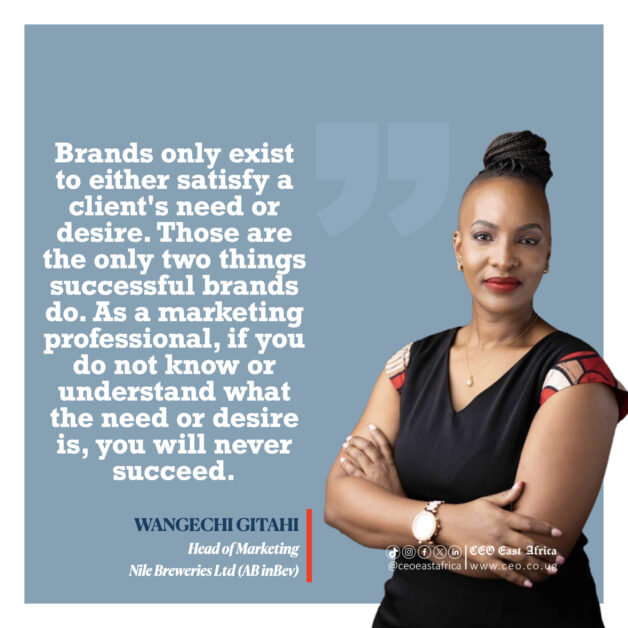
When the team came to my school, they were recruiting, and I just took the opportunity. They taught us how to package the product, how to talk about it, what to highlight, and how to sell it in a fun way. We had what we called “funkies”—basically school parties—and the entry ticket to a funky was buying an Insider Magazine. That was my introduction to marketing.
From there, I started building it up. I launched my own events company focused on teens and university students. I ran Mr & Miss University for three years—it was the franchise that kept us afloat. Then I started branching into weddings and private functions. But when the post-election violence hit Kenya in 2007, everything came to a standstill. I had three events lined up in January. I had taken a loan of KES 4.5 million—that’s around UGX 120 million—but all the events were cancelled. People were switching to civil weddings. Suddenly, I was in debt and out of work.
That’s how I ended up in formal employment. I needed to pay my loans.
I first joined EXP in Nairobi as a Project Manager (June 2010 – October 2011), an experiential marketing agency. That’s where I got my first solid grounding in agency life. After that, I moved to CentreStage Marketing as Business Unit Manager, Client Services (November 2011 – May 2013), where I handled client portfolios and led new business pitches.
I then joined X-Que Communications Ltd as a Client Services Manager (June 2013 – May 2014). It was there that I expanded into strategy, PR, and media planning. Around this time, I also got the opportunity to pursue my Master’s abroad.
After returning from my MSc in Development and Security at the University of Bristol, I joined Capwell Industries Ltd as a Brand Manager (June 2014 – April 2016). There, I led product development and launched Soko Porridge, driving double-digit brand growth and establishing the company’s marketing department.
Then came my big leap into FMCG: Unilever. I started as Brand Manager, Geisha (May 2016 – October 2017), then moved up to Shopper Marketing Manager – Modern Trade & General Trade (November 2017 – December 2019), and eventually became Head of Consumer and Trade Marketing for Uganda (January 2020 – December 2024). Over that time, I led cross-category strategies, innovations, P&L delivery, and shopper marketing, managing both ATL and BTL agency teams.
I spent six incredible years with Unilever Uganda before transitioning in June 2025 to my current role as Head of Marketing at Nile Breweries Limited, part of the AB InBev group. That’s where I am now—and it feels like another powerful chapter just beginning.
But to this day, I still feel drawn to that space of youth and entertainment. I have three small children—8, 10, and 12—and one thing I’ve noticed is there’s very little entertainment content or experiences designed specifically for their age group. It’s either for toddlers or adults—nothing in between. I’ve done a bit of research here in Uganda, gotten involved in school activities, and volunteered my time… and I know it’s something I want to return to eventually.
When you first came to Uganda—though you were still working with the same company—what struck you most about the differences between Uganda and Kenya?
When I first came to Uganda, the biggest lesson I had to learn—and I believe it’s the main reason God brought me here—was patience. I had come from such high-paced jobs in Kenya, where everything was chap chap. We worked through the night if we had to. Everything was urgent. If someone gave you a task, it was expected to be closed within 24 to 48 hours. That was the rhythm I knew.
Then I got here, and everyone kept telling me, “Slow down.” The pace was different. The culture is so much more relaxed. There’s a real sense of balance here that I hadn’t experienced back home. A typical Ugandan will go to work, but will also make time for family, friends, and just living. In Kenya, that balance didn’t exist for me. Sunday was the only day I had with my kids, and even then, if we had an activation, I was dragging them with me to supermarkets and check-ins. So, patience was the first and probably most profound lesson.
The second thing I really, really loved about Uganda is that Ugandans are incredibly genuine people. If someone likes you, you’ll know—they’ll tell you straight up. If someone doesn’t like you, you’ll also know—they won’t fake it. And that level of openness and honesty has been so refreshing for me. In Kenya, we can be very passive-aggressive. You may not like someone, but you’ll still smile and act cordial. Then the moment that person exits the room, you’re bashing them. That’s something that has never sat well with me.
Here, I’ve found a culture of directness that I truly value. Many times—whether through agencies, fellow colleagues, or even in social spaces—if you do something wrong, people will tell you. If you give someone a task and they’re not going to do it, they’ll tell you: “This one, you’ve said six hours, six hours? Give me three days.” At least now you know. As opposed to someone saying “Okay, tomorrow,” then tomorrow comes—you’re fighting. The next day, you’re fighting, and yet you’ve already committed to whoever else you need to answer to. So I really find that refreshing in this culture.
From your experience, are there any stark differences between the Kenyan and Ugandan consumer, whether in behaviour, preferences, or how they engage with brands?
The Kenyan consumer—not just in Unilever—is very commoditised. We’re always looking for deals. It has to be a deal, most likely a discount. And I think it comes from the fact that it’s very expensive to live in Kenya. Food is very expensive, even though the money might be relatively the same as in Uganda.
So in Kenya, you’re always looking for the cheapest, cheapest option to get anything. Even in Unilever, one of the things you’d find is that we had to give discounts—like, we lived our life in discounts. So the economy was very commoditised.
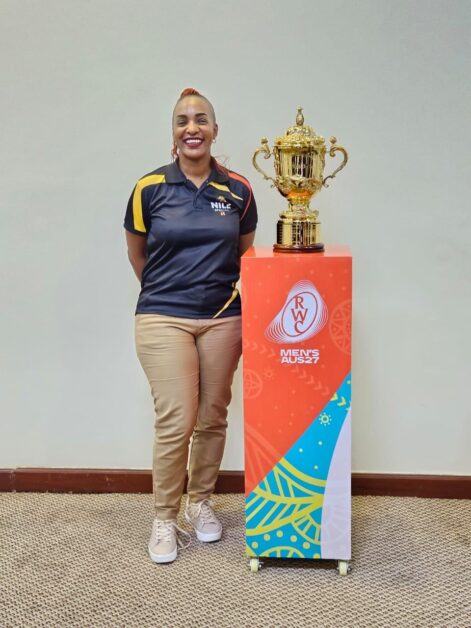
But in Uganda, I think the fact that we use a lot more fresh products as opposed to processed or inorganic… We make our own soap as opposed to just buying packaged products. We have so many choices that by the time someone is going to remove their money to buy something, they’re buying something because it has heritage or credibility, or they trust this particular brand that it will meet their need.
So that’s the biggest difference I see in the market with consumers: people looking for value from a price perspective in Kenya, and in Uganda, people looking for value in added benefits. Yeah, that’s the stark difference that I see.
As a marketer, what’s your personal style or philosophy? What’s your unique approach to marketing—how do you like to do things?
I listen to the consumer 100%. One of the things you’ll find me doing a lot is spending time with people—listening, talking, asking questions, trying to understand why people are doing a certain thing.
Because I think early on in my career, we did a lot of good room marketing, a lot of assumption marketing. And when I came into this country, that’s when the mindset shifted. In Kenya, I assumed I knew—because it was home, right? But coming to Uganda, I didn’t know the market, I didn’t know the industry, I didn’t know the people. So I had to fully immerse myself in consumer life. And that’s where the journey began.
So my philosophy has definitely shifted. Right now, my philosophy is: the consumer is king. But let me qualify that—my brand only exists to either satisfy a need or a local desire. Those are the only two things my brand can do. If I don’t know what the need is, or I don’t know what the desire is, I will never succeed.
And how do I know those things? I spend time with the consumer.
There’s something I was taught by a friend of mine—it’s called human-centred design. What HCD teaches is that if I want to understand what it’s like to be, say, a journalist, a writer, or a creative, I can only truly understand that by spending time with you—observing you in meetings, seeing what you ask, how you think, how you process information. That’s the only way I can design a product or solution that really works for you.
The same thing applies to the consumer. If my target market is the Mama Mboga—the woman who runs a kiosk—I need to spend time with her. I need to understand: how does she make choices? Even the vegetables she buys—how does that process happen? How does she decide how many of each to bring in? How does she price them? Does she upsell to her customers or just sell what she has? What are the invisible factors that influence her decisions?
Human Centred Design has been such an aha! Moment for me as a marketer—especially over the last four years. I actually learned that from a friend of mine during COVID. You know, when we were bored and just having deep conversations like, “What do you actually do?”
So my philosophy will always be this: I will always serve the human consumer first. The human consumer—people like me. They go through similar challenges as me. But what is it that is unique in their situation that I can identify as a sweet spot—a specific need or desire—that I can tap into?
Have you ever reflected on why marketing suits you? Do you think there’s something in your personality or character that makes you naturally fit for it—or have you just flowed with it, unlike many people who end up in jobs simply because they’re available or because their parents told them to?
I think I’m a very easy person to be around. And I’ve been blessed by grace in that I don’t come with preconceptions about people. Some might see that as naïve, but I look at it this way—everyone has a story. Everyone has something about them. But you’ll never get to know that if you’ve already judged them from the start.
That’s one of the things I find very interesting about myself, and it’s something a lot of my friends and colleagues always say too—that I’m very easy to talk to. But it’s also personal for me. I genuinely want to get to know you. What is it about you? What makes you tick?
I can’t offer suggestions or solutions unless I first understand you. I can’t impose what I know on you, because what worked for me may not work for you. So yes, 100%, I would say it’s my personality. I’m open. I listen. And I never come into a conversation having already made up my mind about who someone is. Because when you do that, no matter what the person says, it will go in one ear and out the other—you’ve already decided who they are.
You mentioned being an extroverted introvert—an ambivert. Has that trait helped you in your professional and personal life, or do you sometimes find that it gets in your way?
It gets in my way—yeah, it gets in my way. I think as marketers, we’re expected to be extremely extroverted, right? You’re supposed to be this warm, bubbly, loud human at the workplace, and then that same warm, bubbly, loud person in social spaces and everywhere. Really, that’s the expectation. Everyone thinks that you can only be a marketer if you’re in people’s spaces all the time, in the face of everything.
Now, how does being an ambivert get in my way? I get social fatigue. So even when I’m in spaces with everyone—if I need to talk, if I need to engage—I’ll first go to my car, or wherever I am, and find a quiet space to centre myself. I’ll literally just stop and tell myself, “It’s okay, you can tap into that extroverted energy in you.” And then I can be in that space. But I can only do it for so long.
So you’ll find that if I’m in an extroverted space for more than two hours, I will excuse myself. I’ll say I need to take a coffee or a five-minute break. I’ll walk around, decompress, and expel that social fatigue. I listen to music a lot. I sing to myself. But I need that moment to rebuild my energy.
Even in the evenings—now that I work in nightlife—I still have to centre myself. Sometimes, I’ll take a nap just to tap into that refreshing, rebuilding element of my introverted self, so that I can bring back my extroverted self.
You mentioned something earlier about being creative—and we all have our own hacks for unlocking creativity, our own aha moments. Some people say their best ideas come at the last minute under pressure. Others, like me, might wait to jump into the shower or wake up at 4 a.m., unable to sleep, and then suddenly everything clicks—I grab my phone or notepad and start writing. What about you? What’s your creative hack? When and how do your creative juices start flowing?
My creative juices flow most when I’m with my kids. There are two things we usually do—either we cook together with the music on, or we just put on music and dance. Yeah? And I think it’s because sometimes when you’re at a mental roadblock, you can’t really push through it by forcing things. You kind of need to do something different. For me, music does the trick. So I’m either cooking with the kids or we’re dancing—just dancing. It’s not coordinated—they’re jumping around, I’m twisting, and everything—but that really does it for me.
Let’s talk about your transition from Unilever to Nile Breweries—was it a difficult shift for you? How did you prepare yourself mentally for the change? And in terms of marketing principles, did you find stark differences between the two environments, or did it feel like familiar territory?
Yes, yes—the principles are the same. Nothing really changes. And I think the beauty of having worked in a multinational is that a lot of the fundamentals stay consistent across organisations. It’s just that some acronyms change. Like here at Nile Breweries, we have one called FBI—Free Beer Issue. The first time I heard it, I was like, “What madness is this?” But really, the underlying marketing principles remain the same.
At the end of the day, we’re all speaking to the same consumer basket—we’re all competing for the same wallet. So the question becomes: when people are thinking about relaxation or enjoyment, how do I make sure they consider my brand over another product from a different category?
Now, where we execute the work is completely different. At Unilever, I worked a lot in kadukas—those neighbourhood shops. Open markets were a major focus. Supermarkets were a big space too. But now, I’m in a space where the primary channels are bars, clubs, small corridors that sell alcohol, or more established outlets for alcohol sales.
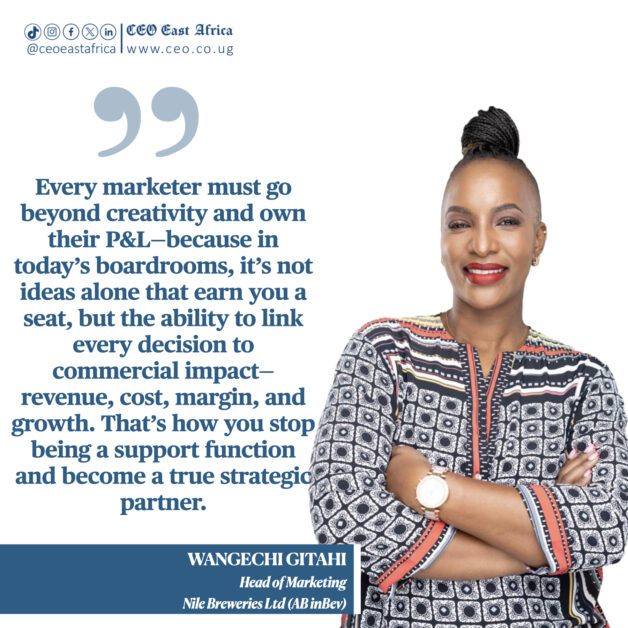
The challenges have also shifted. At Unilever, one of my biggest hurdles was competing with locally made soaps or spice premixes—people making their own blends at home. Today, one of my biggest concerns is unregulated home brews. There’s no standardisation, and that’s a real consumer protection issue. What does standardisation look like in that context? How do we raise the bar for safety?
Then there’s the issue of illicit alcohol. Right now, so much of it is in circulation that sometimes even our properly regulated, packaged, and responsibly marketed brands get lumped into the same category. We all get painted with the same brush, yet we are doing the work—standardising, ensuring quality, and promoting responsible consumption.
So yes, it’s interesting times ahead.
We currently manage 13 brands at Nile Breweries—10 of them are local, and three are imported.
What has your experience been like managing 13 brands—especially considering that each brand is almost like a small company of its own? How do you strike a balance across all of them? It must be incredibly demanding, especially since, as you mentioned, sometimes you even have to be physically present just to observe and manage the brand experience on the ground.
One of the things I really appreciate about where I am now is that the portfolio is actually smaller and more manageable. At Unilever, I was handling 13 brands with over 100 individual SKUs. Here at Nile Breweries, I also manage 8 brands—but with about 15 SKUs in total. So it’s far less complex than people might think at first glance.
The real challenge here isn’t the size of the portfolio—it’s how to position beers that are technically quite similar. Most of them are lagers, so the question becomes: how do I create clear, differentiated identities for each brand, especially when they’re targeting the same broader consumer base?
That’s where defining the brand spaces becomes critical.
Take Nile Special, for instance. It’s deeply rooted in Ugandan heritage—so we align it with sports, culture, and national pride. That’s its space.
Then there’s Club Pilsener, which is more youthful and dynamic. It’s about entertainment, music, fashion, and technology. Right now, we’re in the digital era—AI, IT—and Club can lean into that space to stay relevant and exciting for younger audiences.
And then there’s Chairman—a more refined brand that speaks to established gentlemen, like yourself, who want to celebrate the milestones they’ve achieved in life. It’s about status, reflection, and self-reward.
So ultimately, the complexity of managing multiple brands depends on how you approach it. If you try to do everything with every brand, it becomes overwhelming. But if you stay focused—giving each brand its own core audience, brand pillars, and strategic direction—it becomes much more manageable.
As a leader—both at work and at home—how do you stay balanced? What are some of your personal hacks or tricks that help you stay grounded and manage both worlds effectively? Because, as I often say, work will never really be finished—you just have to know when to stop and pick it up the next day.
To be honest, I’ve just recently reset. Let me be very real about that. The reset only happened between my previous job and this one. In my last job, we had a very lean team and so much to do—we literally worked all the time. I never felt like I could step away from the job. But I also loved the job so much, it didn’t feel like work. We were constantly together—hanging out and working—even over weekends. I’d put the kids to sleep and then jump on late-night calls to go through whatever we needed to do.
I consider myself very privileged that I got an opportunity to reset before I started this current role. And now, I have to be extremely intentional about maintaining balance.
Number one: Sundays are non-negotiable. I do not work. It doesn’t matter what’s happening—we don’t sell oxygen at the end of the day. That’s my family day. It’s just me, my husband, and our children. Whatever the kids want to do, whatever we decide as a family—that’s what we do.
Number two: I joined a book club. It’s a group of professionals from different fields, and we realised we were all drowning in work. There was no separation. So once a month, we meet—just for a couple of hours on a Saturday. We reset, talk, and connect over shared struggles. That really helps.
Number Three: I work out every morning at 5 a.m.—from 5:00 to 6:30, I’m in the gym. It clears my mind, gets me feeling good physically, and sets the tone for the day. It’s a key part of my routine.
Right now we’re on a school break, but when school is in session, my mornings are very intentional. I never compromise on school drop-off—unless I’m travelling. I’ll even take the kids early just to protect that window of time. That moment in the car is sacred. It’s when I get to bless them, we say our affirmations, and I pray over them. It’s a rhythm I treasure. I don’t do pick-ups, so drop-off is non-negotiable for me. Because really—at some point—you have to live, no matter how demanding the job gets.
My day always starts with prayer. I have a prayer app that I use first thing when I wake up. Then I hit the gym, do the school run, and head to work. That’s my weekday rhythm. I also try to protect my evenings. I’d rather stay in the office until 7 or 8 p.m. and wrap everything up—so that when I go home, my laptop stays in the car. We’ll meet again in the morning.
Saturdays are a little more relaxed, but still structured. I still go to the gym. And since there’s no school run, we either do breakfast with the kids, hang out and chill, or I head to book club. When I have errands or shopping to do, I love taking the kids along—it becomes our little bonding time.
You have to be intentional. And honestly, it’s brought me so much fulfilment. I’ve rediscovered parts of myself—I hadn’t cooked a full meal in my house for over three years. I’d make rice, and then work would take over, so someone else did the stew. Now, I’m back to cooking full meals. Again, it comes down to being intentional. We don’t sell oxygen.
Wangechi, we often hear about women breaking glass ceilings, and the common narrative is that these ceilings are typically constructed by men. But I was recently inspired by an interview I did with a senior female lawyer who shared a different perspective—she said that all her biggest career opportunities had actually been created by men. She went on to add that, while she supports the empowerment of the girl child, she’s becoming increasingly concerned about the boy child being left behind in today’s narrative.
This really got me thinking—what has your personal experience been like when it comes to glass ceilings? As someone who has worked under and alongside both male and female leaders, have you encountered barriers that were gender-based? And have you observed instances where, ironically, some women—after rising to the top—end up becoming gatekeepers and block other women from rising?
I’m curious to hear your thoughts on how real or nuanced the idea of glass ceilings is, and how we might create leadership cultures that are more supportive and inclusive of both women and men.
So, number one—the people who have challenged me the most have been male bosses. They pushed me. They threw me into the deep end—severe, deep-sea water—and expected me to rise and shine. The difference, I think, and this goes back to the earlier conversation we had about the roles of our fathers and mothers: a woman might throw you in the deep end but still send you a rope, so at least you can swim toward it. She knows what you’re feeling.
Women are generally more empathetic in that respect—we don’t believe in tough learning. But a man? He will throw you into the deep water and just continue with what he was doing.
So yes—100%—my first boss at Unilever, Pawan, was a man. He threw me straight into the trenches. No help. No fallback. Nothing. You could go and ask him for guidance, but if you came with 10 questions, he’d maybe answer one or two. So you had to figure things out. He taught me how to read, to research, to look for information—how to go out there, find people doing similar things, and learn from them.
The first man who gave me an opportunity at EXP to work on a Unilever brand was my then-boss, Anthony. I met him on a Tuesday. He had a countrywide project and just gave it to me. It was my first real project at EXP. He didn’t know me, didn’t know anything about me—just handed it over and said, “Figure it out.”
At the time, EXP was on the chopping block. Unilever was about to drop them as an agency because the previous team had messed up. I had to figure it out. The next morning, I went to Eldoret to assess the ground. I started in a café. I noticed they had tents outside. So I asked, “Madam, how are you? I’m looking for a tent supplier—can you help?” Then I found someone who did events, and I said, “Okay, you have tents, great. Do you also have sound?” That’s how I built out that entire event—from scratch—by talking to people. That’s what Anthony taught me: wherever you are, talk to people. People have the solutions—it’s not a machine. You must look for the information.
Now, on the women’s side—I’ve had the privilege of working under some really bad female bosses. And I say privilege because they taught me what not to be as a leader. But I’ve also had the honour of working with very good female bosses.
So, is a male boss better than a female boss? Not necessarily. But I believe that, to grow into a strong leader, you must work with male bosses. They teach you a different skill set—one that you will never get from a woman.
Are glass ceilings built by men? Of course. I believe it 100%. Traditionally, men were the builders. We had roles: the woman stayed in the kitchen; the man was out there hunting, gathering, and constructing. So yes, they built the systems. But does that mean we don’t have a spot? No. We do. You just have to go out there and take it. Don’t wait for it to be handed to you. Fight for it. Go through the wall. Hit your head if you must. Dust yourself off—and keep going.
You mentioned making the transition from agency life at EXP to the client side. There’s that running joke that the toughest clients to deal with are ex-agency people—especially when they come from your own agency. When you made that switch, did you ever catch yourself becoming that kind of client? And how intentional were you about not falling into that trap?
One thing I’ve always been clear about—with every agency I’ve worked with, including those I currently work with at Nile Breweries—is this: I will tell you from day one, I’ve worked agency side. I’ve done media buying, worked in a creative agency, and handled below-the-line campaigns. So please—don’t manage me.
That’s what we used to do in the agency: manage the client. There’s a crisis, you know the real story, and then you sit down to decide which version of that story to package and present to the client. Don’t do that with me. Just tell me the truth as it is, and let’s fix it together.
Even if you come to me and say, “Look, there’s a problem and we don’t yet have a solution,” that’s okay. Let’s create the solution together. Because the moment you start managing me, while I’m also managing other internal stakeholders—my boss, my finance team, my legal—it just becomes a mess. Be transparent, and I’ll have your back.
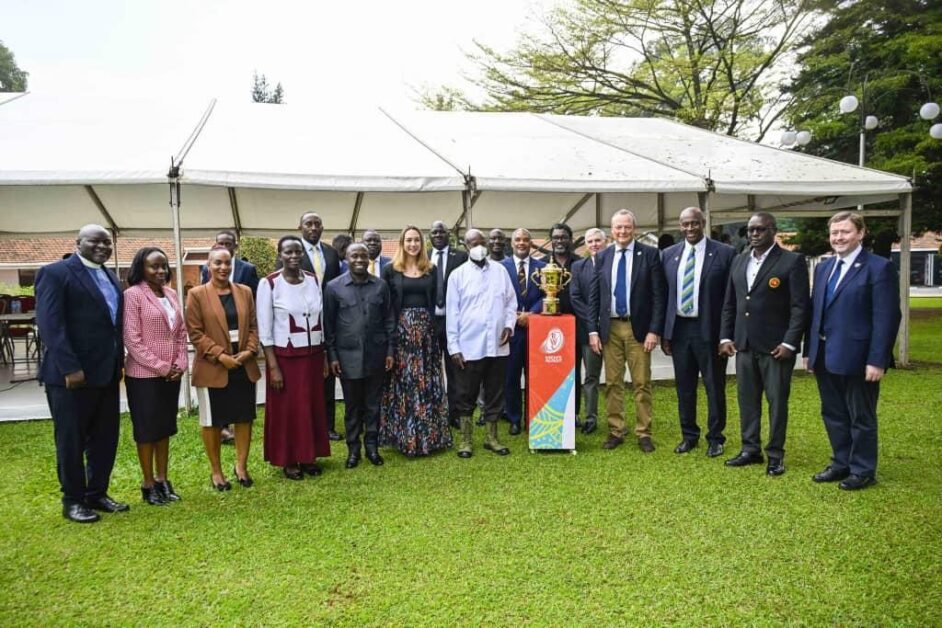
Then there’s the budget issue. Coming from an agency, I know the game. I know there’s a client budget, and there’s an off-budget. I know a healthy agency margin sits somewhere between 40% and 50%. For newer agencies, maybe 30%–35%. So don’t overcharge me. I understand you need to make your margin—it’s how you stay afloat, especially with 60- or 90-day payment terms—but be fair.
And this is the part I struggle with: when an agency charges me UGX 50,000 for a brand ambassador, but when I talk to that same brand ambassador, I find out they were paid UGX 20,000. That’s not right. That’s not fair. And that’s not sustainable.
I’ve recently interviewed about eight different agencies, and a recurring theme is that clients often struggle to see the real value an agency brings to the table. From your perspective, what makes a genuinely good agency? When you’re selecting a partner, what do you look for to ensure you get true value for your money—and where do agencies sometimes fall short or arrive with unrealistic expectations?”
In a series of interviews I’ve done with agency leaders—about eight so far—many of them expressed a concern that some clients don’t fully appreciate or even overlook the value agencies bring to the table. From your perspective, do you think this is a fair concern? What do you personally look for in a good agency partner, and what do you expect in terms of value for money? On the flip side, where do you think agencies sometimes fall short or come in with unrealistic expectations?
Let me tell you—I’m an “Indian” at heart. If you talk to anyone who knows me, I keep telling them, “I’m an Indian.” Why? Because if you give an Indian a job to build a house—maybe their skill is in tiling—they will work with their friend who is an engineer, a surveyor, someone who does glasswork, metalwork. They come together to build something great.
But what do we do as Africans? You give me the job to build a house, I say, “I can do it,” even when I can’t. I go looking for cheap people that I want to manage, just to get it done. The quality ends up being bad.
It’s the same with agencies. I find that nowadays, every agency wants to do everything. My advice? Focus on what you’re really good at. Build that skill. Build it significantly.
Let me even give a shout-out—special recognition—to Zeus. They came up very small, but because they were rooted in the creative space, they really went out there to research what others were doing. Then they would come back and say, “Look, this is what’s being done out there. We haven’t done it yet, but here’s how we think it could work for you. Are you willing to give it a shot?” That’s value. That’s seeing where you can add value as a creative, by bringing new ideas and pushing the boundaries.
But if you try to do everything, there’s always going to be one part of your offering that is less effective. That weaker part can lead a client like me to make a negative judgment about your entire agency. So you’re really putting yourself at a disadvantage.
Now, I love working with agencies. Even if I had a full in-house team, they would never have the same span of control, exposure, or networks as an agency that’s doing this every single day. So I will always work with agencies.
But here’s the deal—let’s all come to the table with what we’re truly good at. Let’s not all try to grab the entire pipeline. We’ll end up spoiling it. Instead, build your niche. I bring my strength. You bring yours. Someone else brings theirs. Then we put it all together—and we create magic.
As a seasoned marketer who has now spent a good amount of time in Uganda, what are some of the key marketing trends and consumer behaviours you’ve been closely observing, especially those that have emerged in the last two years and that you think will shape the next two or three years? What should marketers, and even competitors, be paying close attention to if they want to remain relevant and competitive?
Number one—and everyone is saying it, but I’ll still say it again—is AI and technology. The truth is, most of us don’t know it. We’re not immersing ourselves in it. We speak about it like we’ve mastered it, but we’re not investing the time to actually learn and build the necessary skillsets. Just the other day, my 12-year-old son made a website for a class project. I’ve never built one myself. I’ve always relied on someone else to do it. Yet he sat at home, on his laptop, and made one. He’s 12. What’s my excuse?
As marketers, we need to acknowledge that the world is changing rapidly. And our generation is slowly becoming obsolete. We are a dying breed of laggards—people who think we know it all because of depth in one skill set. Meanwhile, the younger generation is picking up practical skills that get them from point A to B, fast. If we can’t understand or speak their language, we’re going to be left behind.
Number two: shopper marketing. This is an area I had a chance to work on deeply at Unilever, and I’ve honestly struggled to find anyone in Uganda—or even in the wider East African space—who’s doing it well. As marketers, we’ve gotten very good at brand marketing—building strategies and executing them—and at sales: getting the product on shelf, priced correctly, and visible. But we rarely invest in the science behind how shoppers behave when they get to the shelf/point of sale.
We often focus on consumers—how they think, what influences their choices—but a consumer can make a decision and then change their mind at the point of purchase. Why? Because of what they see, hear, feel, how they’re approached, or how the product is displayed. That’s the power of shopper marketing. Eventually, we will all be good marketers, telling the same stories and promoting similar benefits. But those who will win are the ones who understand how to influence that final choice. Why do people pick one identical glass of lemonade over another? That’s the insight we’re missing.
And finally, this is something I think is especially true for Uganda: our culture is not going to die. It’s so rich—our language, music, food—there’s an authenticity here that gets passed down from generation to generation. You see it everywhere, and we’re proud of it. The question is: how do we use that richness to elevate our brands?
We need to find ways to export our cultural nuances and infuse them into brand storytelling. That’s what will set Uganda apart and create emotional connections that last. It could be something as simple as the way a soda is served—but that story, that feeling, is what people will remember and buy into. At the end of the day, it’s still a soda—but if it’s wrapped in a Ugandan experience, a Ugandan identity, it becomes something more.
That’s the sweet spot. I haven’t cracked it yet, but give me a year—we’ll talk again, and I’ll have something to show for it.
And then, of course, I imagine there are things that worry you—not just as a marketer, but about the profession more broadly. What’s keeping you up at night? What are those issues where you find yourself thinking, “I don’t know how we’re going to solve this…”? It could be anything—from the quality and preparedness of the student talent pool, to the challenge of retaining young professionals, or even how leaders are struggling to manage Gen Z in the workplace. What are some of those real pain points you’re seeing—and maybe even personally wrestling with—that you think we, as an industry, urgently need to address?
Our education system, as a country, really worries me. I told you I used to work on a schools project at Unilever, and I interacted a lot with KCCA schools. One of the things you find is that the curriculum is so old-school—it doesn’t speak to the generation we are raising. We have a very young, vibrant TikTok generation living their lives online, but we’re still teaching as if we’re stuck in the 1970s. For instance, this is still how we teach math: one plus one is two. Okay, it’s foundational, but how does that help a child survive in today’s world?
Instead, we should be teaching them how to generate wealth. How do I make money? How do I invest it? How do I multiply it? That’s a better way of teaching math than just running around school shouting out times tables. Even the way we teach science is outdated. We don’t connect theory to life. It’s a missed opportunity to spark curiosity and real innovation. The curriculum is theoretical, not practical.
I’ve had the privilege of my children attending an international school, and I’ve seen the difference. What’s considered Primary Two over here, over there the students learn about money—by actually touching money. They’re taught how to give change, how to calculate interest. These are 7- or 8-year-olds. Their final term project is to set up a shop. They choose what to sell, name the shop, create posters, and we, as parents and the rest of the school, come and “shop.” The children explain their products, calculate prices and change—real math, real customer service, real-life confidence. That’s education.
So my worry is: how does our education system align itself to the realities of the world we live in? It doesn’t. That’s the first thing.
The second issue is around language. While it’s important to preserve our culture—and I’m all for that—we also have to be honest about the limitations it can create in business. So many Ugandans do business entirely in Luganda. When a foreigner walks into their shop, they can’t even communicate. That means their ability to expand, to explain what they’re selling, is limited. If we’re not embracing English as a global business language, we’ll keep struggling. Tourists might enjoy Uganda, but when they ask a simple question about a dish or a product, the tour guide or vendor can’t explain it. That’s a missed opportunity. What will that person take back home?
Finally, we have very few idea incubators in this country. And even those that exist are mostly based in Kampala. What happens to a person in Soroti who has a great idea? Where do they go? How do they turn it into a business? We don’t have nearly enough support structures to nurture innovation across the country. So I worry.
What are we doing—as policymakers, as private sector players, as people who care about this country—to build a Uganda that’s innovation-driven, that’s tech-savvy, that nurtures and exports ideas? There are brilliant ideas out there waiting to be brought to life. But without the right ecosystem, they die in someone’s notebook. And that, to me, is a real concern. I’m deeply worried.
There’s something I’ve been picking up in my conversations with various marketers in town—and I’d love your take on it. Some people feel that the new generation of marketers isn’t as decisive or bold as the older crop. Back in the day, marketers were seen as powerful decision-makers who influenced real business outcomes. But now, there’s a sentiment that many young marketers shy away from taking tough calls or pushing back when necessary.
Do you think this is a result of marketers today not being trusted or empowered enough by their leadership? Or could it be a competence issue—maybe they haven’t earned that trust yet? What’s your view on the evolving role and confidence of marketers in corporate decision-making today?
Very, very good question. To be honest, I only came to fully understand this when I moved to Unilever. At Unilever, the marketer is responsible for end-to-end delivery. You’re like a puppeteer—you need to understand how sales work, how logistics operates, what procurement does, and how finance impacts your plans. You’re expected to have a clear grasp of how every part of the business functions. That broader understanding gives you a wider span of control and, more importantly, helps you identify where the loopholes or bottlenecks might be.
There are three big gaps I’ve observed that explain the problem:
First, marketers often lack cross-functional understanding. They focus on their immediate tasks, without appreciating the full value chain. Without that perspective, it’s hard to make bold, informed decisions.
Second, we’ve handed over control of policies and procedures to other departments—finance, procurement, admin—while marketers, who are the face of the organisation and relationship-builders, have no clue what happens in those back-end processes. So, for example, a marketer raises a request and just waits for an LPO to land in their inbox without knowing the internal approval timeline or the steps in between. That lack of visibility breaks trust with partners. You promised the LPO in two days, but your system needs 72 hours. You’ve already broken trust.
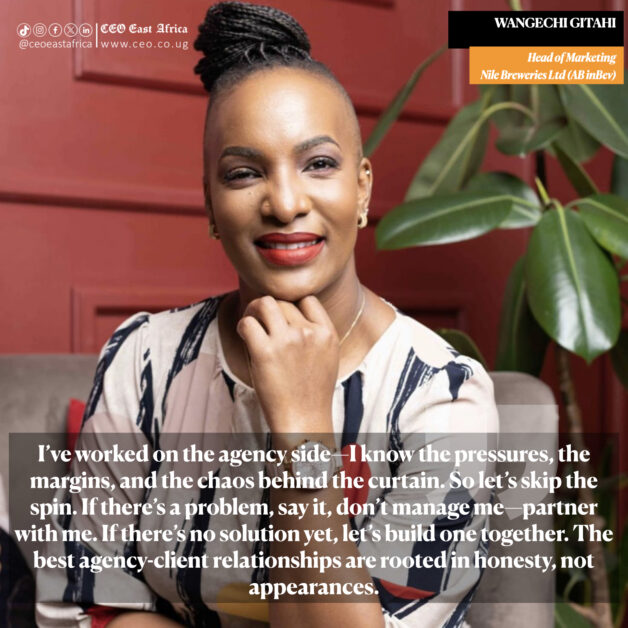
Third, we no longer build strong relationships—internally or externally. Back when marketing roles were fewer and more glorified, people assumed that once you gave an instruction, things would just get done. But they didn’t really understand what happened after giving that instruction.
I now teach CIM because I personally struggled with this. I’d hire someone who looked fantastic on paper, but the minute they started working, I’d find myself asking, “What happened?” And I’m not perfect either—I have my flaws. But this is where I realised the real disconnect lies: we’ve separated what we learn in school from what we do in the workplace. Our onboarding is broken.
So, long story short:
Every marketer should understand their P&L—how it’s built, what drives it, and how marketing decisions impact it.
Understand the internal processes. Understand the systems and structures.
And learn to speak the language of finance. That’s how you get your budgets approved. Show the ROI. Show the sales impact. Speak in numbers. When finance sees that, they’ll support you.
Because if you’re promising customers something and you can’t deliver due to internal delays you didn’t anticipate—that’s not a procurement problem, that’s a marketing credibility problem.
We need to return to the fundamentals: as marketers, we must own our responsibility across three areas—functional understanding, procedural knowledge, and relationship building.
As we begin to wrap up, are there any marketing campaigns—local or global, aside from your own—that have recently caught your attention? Something you found particularly inspirational or exceptionally well executed?
First, I won’t tell you about the competition—can I talk about a Unilever campaign instead? But actually, the one campaign that I really love is the Dollar Shave Club. I don’t know if you’ve heard of it. It started in the U.S., and what happened is they realised that every man wants to have that clean, smooth shave every single day, but chances are, they forget to buy a shaver.
So they created this business called Dollar Shave Club and built a whole online model around it. You could order your shavers monthly or even a year in advance, and each one was just $1. They figured out the real reason people weren’t buying shavers—it wasn’t just about habit, it was price. If a shaver costs $5, it feels expensive. But if I give you a high-quality one for $1, suddenly, it becomes part of your daily routine. It was such a simple insight, and they turned it into a brilliant, scalable business. That’s what I found really inspiring.
Is there any marketing book, podcast, or person you’re currently really into or drawing a lot of inspiration from?
Always Diary of a CEO — I think it’s amazing. But number two, the marketing bible that everybody, everybody should read is How Brands Grow by Byron Sharp. It completely demystifies everything we learned in school and brings marketing to life. It teaches you principles as they actually exist in the real world — not as they were written 90 years ago.
Looking back, what’s one skill you wish you had developed earlier in your career, and why has it become so important to you now?
I’m a Toastmaster, and let me tell you—one thing I really wish I had learned earlier in life is how to stand up and speak confidently in front of people. I’ve had so many moments where the opportunity was there—whether at a function where someone needed to give a vote of thanks or even just say a few words before a meal—and I’d freeze.
You walk into an organisation, someone asks, “Any questions?” and all you can think is, “Not me!” Because growing up, many of us were taught to be seen, not heard. So what do we do? We recoil. We stay quiet. Unless someone specifically calls you out, you won’t say a word.
It’s a missed opportunity every time—and I’ve come to realise how powerful your voice can be when you learn to use it.
Share this content:
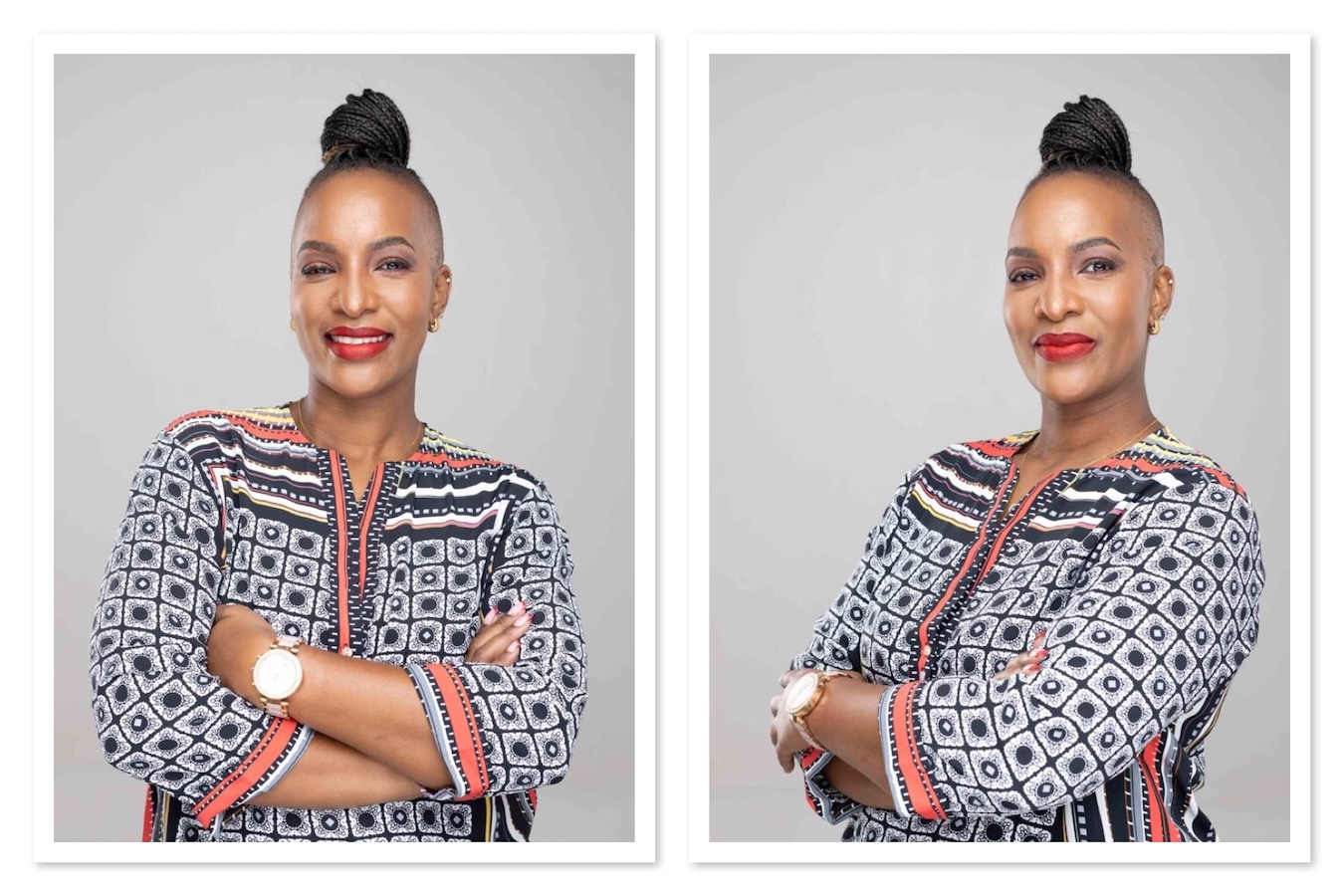
 Josephine Olok: Building Uganda’s Tech Future with Purpose, Passion, and People
Josephine Olok: Building Uganda’s Tech Future with Purpose, Passion, and People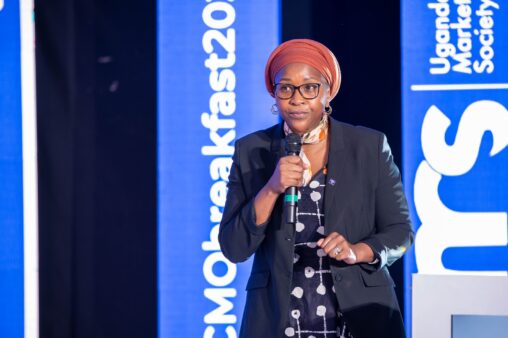






Post Comment